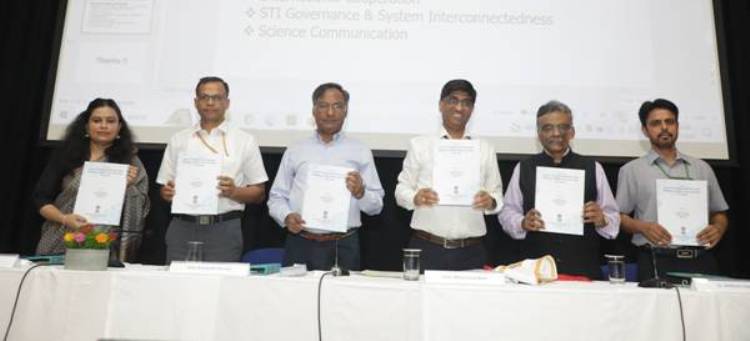The Department of Science and Technology (DST) organized a national brainstorming session on “Transforming Science, Technology, and Innovation Ecosystems of India” at the Indian National Science Academy (INSA) in New Delhi. The discussions, hosted by INSA, addressed key areas such as research and innovation, equity and inclusion, technology development and translation, entrepreneurship, international cooperation, and governance of science, technology, and innovation (STI).
Key Speakers and Highlights:
Prof. Abhay Karandikar, Secretary, DST: In his inaugural address, Prof. Karandikar highlighted DST's pioneering role in developing science and technology policies to facilitate R&D. He noted that DST has established several policy research centers and has led efforts in formulating science and technology indicators, benchmarking them globally, and conducting evidence-based analyses of India's scientific and technological ecosystem. Prof. Karandikar emphasized the need for DST to develop agile and adaptive policies that align with rapid changes in the S&T ecosystem and to work in harmony with various ministries to facilitate research and support deep tech startups. He stressed the importance of a long-term policy for creating a robust ecosystem for basic science research to drive discoveries and inventions in India.
Prof. Ashutosh Sharma, President, INSA: Prof. Sharma spoke on the extensive process involved in STI policy formation, which included consulting around 50,000 stakeholders from different sectors to balance conflicting demands. He underscored that effective science policies are crucial for translating scientific work into practical benefits, citing the new open National Geospatial Policy as an example. This policy has helped deliver the benefits of geospatial information to Indians, making resources like rural land economically significant by clearly defining ownership.
Dr. Akhilesh Gupta, Senior Adviser, DST: Dr. Gupta provided an overview of DST’s policy research initiatives and detailed the formulation process of the Science, Technology, and Innovation Policy (STIP) 2020.
Session Goals: The session aimed to develop a comprehensive roadmap for national science policy development, identify specific policy recommendations to address critical challenges, foster collaboration and knowledge exchange among policymakers, researchers, and industry stakeholders, and establish a platform for ongoing dialogue and collaborative policy development.
The event was a significant step towards shaping policies that would strengthen India's S&T ecosystem, promoting innovation and ensuring that scientific advancements translate into tangible benefits for society.











